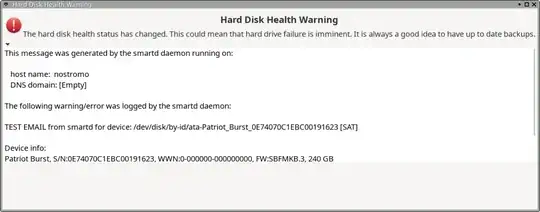To configure S.M.A.R.T. monitoring, it's indicated configuration file /etc/smartd.conf should be customized by identifying each device and the smartctl parameters assigned to it, except:
smartctlstill uses the slightly unpredictable standard of identifying devices by name [/dev/sda,/dev/sdb, etc.]. Years ago, kernel developers saw the issue with this and switched to better methods of identification, particularlyUUID,PARTUUID, andLABEL, but unless I'm missing it,smartctlseems not as "smart" as we would like.- When I start a particular system, the drives that house a RAID configuration may be
/dev/<sda - sdh>, but if there happens to be a USB drive inserted at boot, those names will switched to/dev/<sdb - sdi>(if there are two USB drives attached, they might shift more, or on the next boot, they might not).
What are others doing to avoid this and ensure the S.M.A.R.T. configuration is appropriate for the mounted devices? (Please don't suggest leaving the USB slot empty - that's not a reliable solution.)
